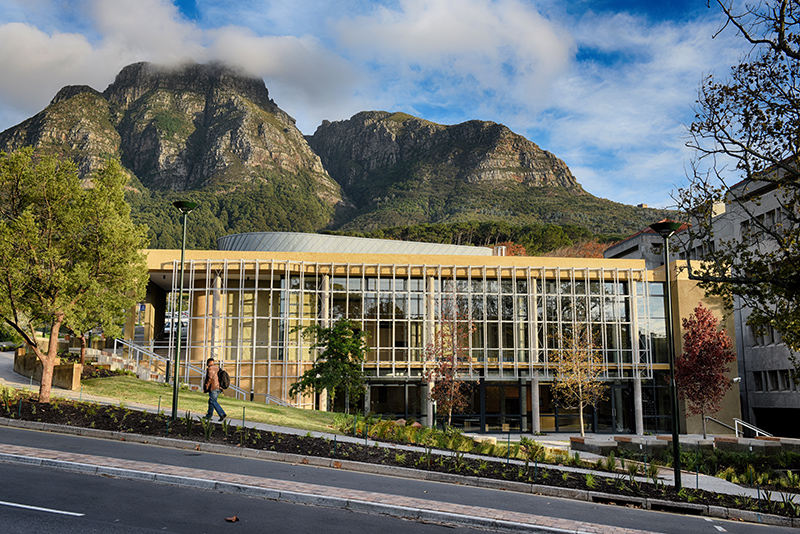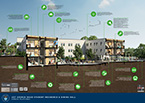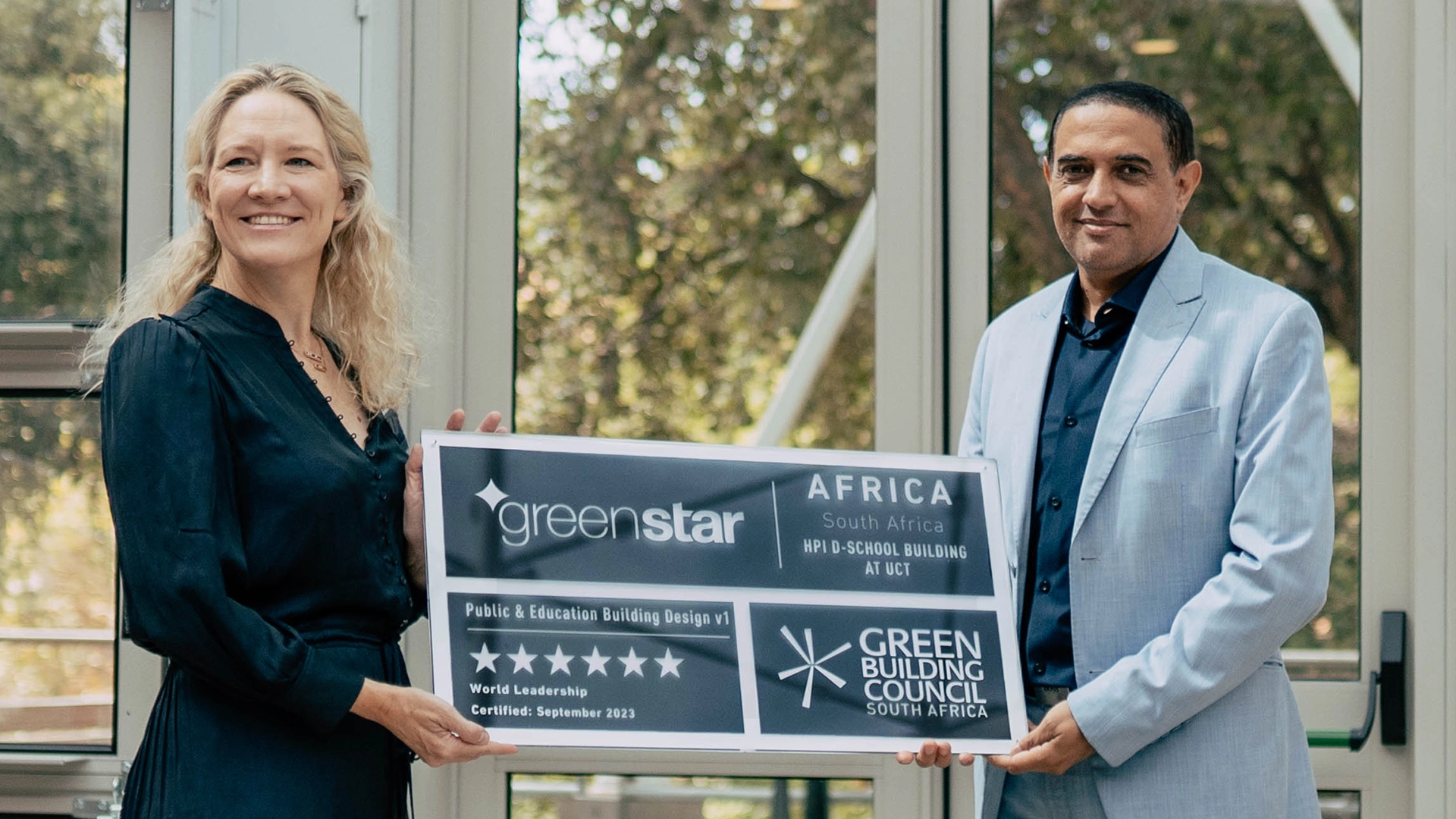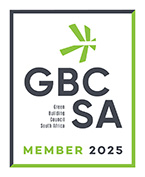Principle 1 [1] of the International Sustainable Campus Network (ISCN) covers electricity, water, waste and recycling, and greener buildings:
Electricity
UCT introduced some digital web-based metering in 2011, and in 2014 made the decision to roll out metering to all buildings. This project has now been completed. Electrical energy-use reporting is available on the energy consumption page.
Electrical equipment is continually being replaced with more efficient technologies. Solar water heaters have been installed to some small and medium residences. Energy-efficient heat pumps, which are more suitable for morning-peak demand, have been installed in larger residences.
UCT is investigating other renewable energy technologies to save operational costs and to demonstrate environmental responsibility. The Department of Electrical Engineering has conducted research into photovoltaic panel installations on the roofs of some of the larger buildings on campus. Although the electricity generated will be small, the project will be a valuable teaching and research tool, as well as an opportunity to raise awareness of the need for sustainable energy production.
Energy Performance Certificates
UCT’s Energy Performance Certificates for buildings where this is required by law:
EPC-SA 00072-2023 – Leslie Social Science
EPC-SA 00073-2023 – GH Menzies
EPC-SA 00074-2023 – John Day
EPC-SA 00075-2023 – Beattie Building
EPC-SA 00076-2023 – Werner and Beit South
EPC-SA 00077-2023 – HW Pearson
EPC-SA 00078-2023 – Werner and Beit North
EPC-SA 00079-2023 – Steve Biko Students Union
EPC-SA 00107-2023 – GSB Block B and D
EPC-SA 00108-2023 – The School of Economics
EPC-SA 00109-2023 – Meulenhof Building
EPC-SA 00110-2023 – Centlivres Building
EPC-SA 00111-2023 – Computer Science
EPC-SA 00112-2023 – AC Jordan Building
EPC-SA 00113-2023 – Hoerikwaggo
EPC-SA 00114-2023 – Snape Building
EPC-SA 00115-2023 – Masingene
EPC-SA 00116-2023 – Elec and Mech Building
EPC-SA 00117-2023 – Maths Building
EPC-SA 00118-2023 – Banard Fuller
EPC-SA 00119-2023 – Medical Library
EPC-SA 00120-2023 – Baxter
EPC-SA 00121-2023 – Leslie
EPC-SA 00122-2023 – New Engineering
EPC-SA 00123-2023 – Bremner Building
EPC-SA 00124-2023 – Geological Sciences
EPC-SA 00125-2023 – New Lecture Theatre
EPC-SA 00126-2023 – Humanities Building – Old Neville Alexander
EPC-SA 00200-2023 – Falmouth
EPC-SA 00201-2023 – Immelman
EPC-SA 00202-2023 – Ritchie
EPC-SA 00203-2023 – PD Hahn
EPC-SA 00204-2023 – Molecular and Cell Biology
EPC-SA 00205-2023 – RW James
EPC-SA 00206-2023 – Chemical Engineering
EPC-SA 00207-2023 – Maintenance
EPC-SA 00208-2023 – Environmental and Geo
EPC-SA 00209-2023 – Anatomy
EPC-SA 00210-2023 – Chris Barnard
EPC-SA 00211-2023 – ICTS on Main
EPC-SA 00212-2023 – Sports Centre
EPC-SA 0736 2022 – New College of Music
EPC-SA 0737 2022 – Student Union Extension
EPC-SA 0738 2022 – Wilfred and Jules Kramer
Water
Water is an increasingly precious resource. Cape Town experienced one of its worst droughts in 2017/2018 during which time UCT was able to significantly reduce its water consumption, largely through behaviour change and an award-winning extended communications campaign. As a result, UCT obtained some funding from DHET to develop a sustainable water management strategy (an executive summary for the strategy can be found in this news article) for the university and began the roll-out of a number of interventions from 2020 to 2025 to help reduce UCT’s ongoing water consumption. The projects are largely focused on student residences, where UCT’s water consumption is highest and include the following:
- Mapping UCT’s underground services for the Main Campus
- Installing a water meter per building linked to an online metering dashboard
- Installing low flow water fixtures to residence buildings with the highest water consumption
- Building a central residence sewage water recycling facility to recycle water for toilet flushing and irrigation purposes
- To develop a business continuity plan for various day-zero and water outage scenarios
For archived News articles related to the water crisis
Waste and recycling
Source separation of waste began in earnest during 2008, driven by students in the departments of botany and zoology and working with Properties and Services.
Recyclables and non-recyclables are collected on alternate days. Clear bags and green-lidded bins are for recyclables, and black bags and yellow-lidded bins are for non-recyclables. White-lidded bins are dedicated to the collection of white office paper for recycling.
Food waste is now being separated in some residences and sent to a composting facility.
As with any other research-intensive university, UCT generates small quantities of a wide range of hazardous waste materials. These are closely monitored. UCT does recover some solvent waste and oils.
UCT has an e-waste service (e-waste is any item that contains electronic or electrical components) that is currently removing approximately 10 metric tonnes annually for reuse/recycling.
UCT collects used fluorescent tubes and compact fluorescent lamps (CFLs) for safe disposal, as well as printer cartridges and certain unused plastic-ware from the laboratories for recycling.
Greener buildings
In June 2012, UCT’s Council took the formal decision that all new buildings are to be designed and constructed to meet a minimum 4-star Green Star SA certification for green buildings from the Green Building Council South Africa (GBCSA). In 2023, this was superseded by the Council’s approval of UCT’s policy for Minimum Green Building Construction Standard for the construction of new buildings and refurbishments. This allows for independent third party audit and assurance of the green building design and construction measures that align with international best practice standards for green buildings.
The New Lecture Theatre, which was completed in 2016, was the first green building to achieve this rating (4-star). It incorporated various green building features, including being more energy and water efficient compared to South African standards, using recycled aggregate in the concrete. It includes rainwater harvesting, where the water is held in tanks below the building and is used for flushing toilets. For a short case study on the various Green Star certified projects, refer to the links on each of the building names listed here.
Since then a number of other green buildings have been built by UCT, including the GSB Conference Centre (4-star), Avenue Road Residence (4-star), the School of Education (4-star) and the d-school (6-star).
In 2023 UCT’s d-school Afrika achieved a 6-star new build design rating from the GBCSA, which was the first and only academic building on the continent to have achieved such a 6-star rating at the time. Read more about the green building features on the d-school website, under the section “Building Features”, as well as the GBCSA’s short Green Star case study available on the GBCSA website. The building’s design has also won various industry awards for sustainability and innovation.
Download the green features PDF poster for the d-school Afrika building.
1. Principle 1: To demonstrate respect for nature and society, sustainability considerations should be an integral part of planning, construction, renovation, and operation of buildings on campus. ↩



